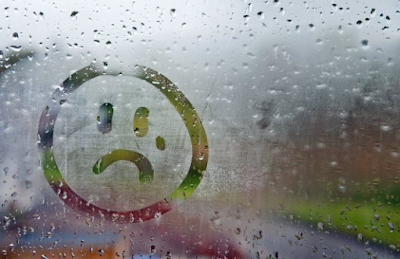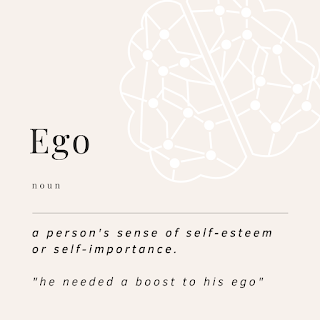STRESS IN RECOVERY: RELAPSE PREVENTION
WHAT IS STRESS?
Stress is defined as ‘the feeling of being overwhelmed or unable to cope with mental or emotional pressure’, causing bodily or mental tension.
Even if we manage to ‘keep it simple’ and minimise stress in our lives, there is sadly no way of avoiding it altogether, and is something that we have all experienced on some level.
"There is no such thing as a stress-free life. No evidence has ever been presented which suggests that a stress-free life can ever be achieved. Stress can be managed, relieved and lessened, but never eliminated.”
Gudjon Bergmann
It is however, important to recognise that not all stress is bad. Some stress in our lives is inevitable and part of the human experience. Accepting this is an important element of managing stress and maintaining perspective when things do get a bit full on!
So, take a deep breath and a few minutes out of your (hopefully not too stressful) day to learn a few stress basics..
THE SCIENCE BIT
What does stress actually do to our body, and how can this manifest? There are three stages to our response to stressful stimulus, the alarm stage, the resistance stage and the exhaustion stage.
The alarm stage is when the central nervous system is awakened, causing your body’s defences to assemble. This results in the fight-or flight response that many of us in recovery will be no doubt familiar with. Anyone with a history of anxiety will know what this feels like - you may feel agitated, hyper-aware of your surroundings or like you need to leave the room to escape the situation.
The resistance stage is when your body begins to repair itself and normalise after the initial stress response - for example, your blood pressure and heart rate will begin to return to normal. Even in this recovery phase, you will still be on high alert, but only for a short period of time; most stress responses are temporary.
The exhaustion stage occurs as the result of prolonged or chronic stress; leaving you in a permanent state of fight-or-flight and over time draining your physical, emotional, and mental resources to the point where you are overwhelmed and unable to function; otherwise known as burnout.
Not to be confused with anxiety, symptoms of burnout due to stress can include the following:
Feeling tired or drained most of the time
Feeling helpless, trapped and/or defeated
Feeling detached/alone in the world
Having a cynical/negative outlook
Self-doubt
Procrastinating and taking longer to get things done
Feeling overwhelmed
You may give up or feel your situation is hopeless. Many of us in recovery will again be familiar with these feelings, and a successful recovery from addictions requires us to understand and manage our stress triggers and reactions.
STRESS IN RECOVERY
It won’t surprise you to learn that stress and addiction do not go well together. Many people find themselves in active addiction due to turning to substances or behaviours to find short term relief from stress. But as for stress in the longer term, drugs and alcohol will only serve to exacerbate and compound stress, creating a vicious cycle of stress and alcohol and/or drug use (again, no surprises there!).
Thankfully, we can learn healthier coping strategies in our recovery to manage our response to stress. Early recovery can be a stressful time for many, with a number of big transitions in a short amount of time. Life doesn’t stop happening because we are getting sober, and often we find ourselves facing challenging situations at the most difficult times. Such is life!
Those of us who become addicted to substances or suffer from process (also referred to as behavioural) addictions may already be hypersensitive to stress, and this can become problematic in early recovery. We also have more to lose - the risk of relapse in the absence of coping strategies is a very real one.
"Times of stress are also times that are signals for growth, and if we use adversity properly, we can grow through adversity."
Rabbi Dr Abraham Twerski
The key to recovery is learning to replace old coping habits with healthier ones, and sadly, there is no easy shortcut - practice (and perseverance) makes perfect. Even if we intellectually know there are healthier ways to cope available to us, in times of stress it is often still a reflex to reach for the thing we know will make us feel better instantly, despite the potential ramifications. This instant gratification is very tempting, and down to a number of complex factors, but partly down to actual changes in the brain.
True recovery and a life of freedom requires us to learn how to pause and respond more mindfully in stressful situations, instead of reacting in the moment. We can also reframe our perception of stress and accept it as part of the human experience.
"If you are distressed by anything external, the pain is not due to the thing itself but to your own estimate of it; and this you have the power to revoke at any moment."
Marcus Aurelius
MANAGING STRESS
Now we know a little more about stress and its potential impact on recovery, what practical steps can we take to stop that downward spiral?
Here are some practical tips - I am not reinventing the wheel here, so you may already be aware of them - they are on this list because they work (if you work them).
Take a Moment
It is easy to get caught up in a stressful situation and forget that we can actually take a moment to pause and choose how we respond.
It seems like such an obvious thing to do, but we can often find ourselves reacting in the moment and acting instinctively rather than with purpose. For someone in recovery this snap reaction can be the difference between sobriety and relapse, so the stakes are high.
One imaging study of expert meditators found that mindfulness meditation actually changes the structure of the brain, leading to a reduction in the perception of threat, and an ability to better manage difficult situations.
Practising mindfulness meditation is particularly beneficial in addiction recovery, as it allows us to gain acceptance of our current situation in a non-judgemental way, rather than trying to ‘fix’ or avoid it. We can also gain a greater awareness of our triggers and responses, interrupting previous problematic behaviour.
The good news is we don’t have to spend hours in the Lotus position to reap the benefits of mindfulness - we can incorporate it into our daily recovery with little effort. With time and repeated use, the ability to pause and be present will become automatic.
The S.O.B.E.R method is an excellent place to start and is easy to reach for when you need to get present:
STOP what you are doing
OBSERVE yourself for signs of stress or ‘flight or flight’
BREATHE deeply and slowly (see the box technique)
EXPAND your awareness and look at the bigger picture
RESPOND mindfully with this objective state of mind
You may prefer to use an app (of which there are many), or save a short mindfulness exercise on your phone to use if you need to take a pause.
I incorporate mindfulness into my day by using the SOBER technique and the Serenity Prayer and after nine months, it has become an automatic response to stress and cravings. When time allows, I also practise guided meditation in the morning or evening for 10 minutes, especially if I am finding myself using the SOBER technique more than usual - It’s a sure sign I need a mindfulness top-up!
I am by no means perfect and some days are easier than others, but overall, I am much more able to accept situations for what they are, and take a step back. I find this practice especially helpful if I find myself ruminating or holding a resentment (I am an addict, after all!).
Reach out
We are terrible at asking for the things we need! But knowing when you need support and being able to ask for help is a strength, not a weakness. Fellowship and mutual support is an essential part of managing stress and maintaining sobriety.
If you have a sponsor or someone mentoring you through recovery, it is helpful to remember that by reaching out in times of need (or even for a daily catch-up when everything is ok) you are not only helping yourself but them too - helping another person in recovery is a perfect way to step away from your own needs and be of service to others.
Friends and family can be a support as they almost always want to see us well, but may not understand the complexities of being in recovery (and nor should we expect them to). Having a sober support network can be extremely beneficial, especially in early recovery or if you are going through a tough time.
Perhaps professional help might be more appropriate? Counselling and therapy with a trained professional can be an invaluable element of managing stress, providing you with a safe space to talk about things that you might not want to bring up with those closer to you.
I have been in therapy for over two years and although it didn't get me sober, it has been a valuable part of my recovery journey. It allows me to address the things I would rather not share with my loved ones with someone I am not emotionally involved with. It is an hour a week all for me and I make the most of it!
Rest Up
This might seem like an obvious one, but we are much more likely to succumb to stress if we are not well rested.
Sleep is imperative for our resilience to everyday stressors, and we are much more likely to be able to manage stress effectively having had enough shut-eye. The average sleep an adult requires or might expect to sleep is around eight hours a night.
Are you getting enough sleep? I bet most of you are not getting the recommended amount per night, and muddle through while sleep deprived. Just getting an extra 60-90 minutes per night can make a huge difference to happiness and wellbeing, and in turn more able to cope when life is stressful.
If we are sleep-deprived, we can end up in a spiralling sleep/stress cycle, where we are easily stressed as a result of lack of sleep, which in turn leads to losing more sleep, and so on!
I have noticed that I am much less resilient to stress, an generally less confident in my recovery if I do not get enough sleep, so I do the following to ensure I am well rested:
Say no to late nights - it might be fine for my friends to roll home at 1am, but it isn’t for me, and I’m ok with that!
Enjoy a ‘sleepy tea’ with valerian root and lavender - delicious! My personal favourite is Pukka Night Time.
Use aromatherapy oils (what I use varies, but for example lavender ,turmeric and chamomile) in my bath to create a soothing aroma (be safe if using essential oils).
Set aside at least 15 minutes for screen-free time before bed. I usually enjoy a 10 minute yoga session or listen to a podcast (or both if I’m feeling fancy).
I have a sleep tracker on my watch that has been a game-changer. I am able to see how well I slept the night before, so I can see if my sleep quality needs some attention. If you are thinking about trying one for yourself, the OIWODO X5 Smartwatch is affordable and easy to use.
If I need a duvet day, I take one. I know this can’t be the case for everyone as we have varying levels of responsibility and available time to rest, but I never apologise for cancelling non-essential plans to take time for myself. After all, I am of little use to anyone if I am running on fumes.
Be Kind to Yourself
Self-compassion involves being as kind to yourself as you would be to a good friend (assuming we are kind to our friends!) when you are having a difficult time.
Instead of just ignoring your pain with a “stiff upper lip” mentality, you stop to tell yourself “this is really difficult right now,” how can I comfort and care for myself in this moment?
"Our successes and failures come and go—they neither define us nor do they determine our worthiness."
Kristin Neff
The three elements of self-compassion (as defined by Dr Kristen Neff)
SELF KINDNESS (instead of self judgement)
Being self compassionate starts with being gentle with yourself, and recognising that as humans we are bound to experience things like stress, disappointment, anger, failure and a host of other feelings and emotions. We sometimes fall short of our expectations and that is ok - no one is perfect, even perfect people!
COMMON HUMANITY (instead of isolation)
All humans suffer. That is a fact and will never change (at least not in our lifetime!) Accepting this and also recognising that suffering and inadequacy is part of the human experience. You are not alone, and knowing that helps a bit.
MINDFULNESS (instead of over-identification)
There’s that word again! We cannot deal with difficult feelings without first acknowledging they are there. This takes us back to being able to pause and observe our negative thoughts and emotions in a compassionate and non-judgemental way, without either suppressing or exaggerating them. And breathe...
For me, self compassion is as simple as asking myself what I need in the moment, and taking the time to do whatever that is. It could be as simple as taking a 5 minute break from my screen when feeling a bit frazzled (every 30 minutes or so, using the handy timer on my smart watch!) or as radical as taking a self care day off work or cancelling a dinner date when I know my stress levels are less than ideal and I am screaming for a hot bath and bed.
It also means allowing myself to be imperfect, while congratulating myself for small wins. I ‘accidentally’ ate 4 donuts at work today? Let it go and
maybe don’t eat 4 again tomorrow! But I got myself to bed another day sober? Great work, HIGH FIVE!
You can learn more about self compassion from my previous blog: ‘Self compassion in recovery - breaking the shame spiral’
So to conclude, stress is a part of life, whether we like it or not; but moving forward after addiction and into recovery can empower us to find better ways to manage it. Why not make a list of 3 tools you can use in times of stress? Use this as part of your recovery toolkit and resolve to try them next time you feel overwhelmed. I am also vigilant about working my program and keeping an eye out for those early warning signs of a potential relapse.
If you are concerned about stress impacting your recovery, never be afraid to reach out. UKAT’s Alumni Team are available on 0203 949 6585 to offer non judgemental support.
Celeste is in recovery from addiction and is passionate about exploring ways we can be accountable for ourselves, while practising radical self-compassion. They have embraced the spiritual aspect of their recovery, and finds peace in simple pleasures.
RESOURCES AND FURTHER READING
Stress and drug abuse: The brain connection (2007)
An overview of behavioural addiction (2020)
Burnout - Mental health UK (2021)
What is the fight or flight response? (2019)
The Sleep Charity - FAQs (2020)
The three elements of self-compassion (2022)




Comments
Post a Comment